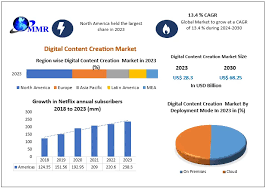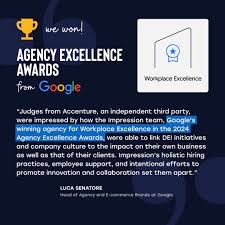Championing Creators: Empowering Innovation and Inspiration
The Power of Creators: Driving Innovation and Inspiration
In today’s fast-paced world, creators play a crucial role in shaping our society and driving change. From artists and writers to designers and innovators, creators are the visionaries who bring new ideas to life and inspire others to think differently.
Creators are the catalysts of innovation, pushing boundaries and challenging the status quo. They have the ability to transform ordinary concepts into extraordinary works of art, sparking creativity and imagination in those around them.
Whether it’s through music, literature, technology, or design, creators have the power to evoke emotions, provoke thoughts, and ignite passion. Their work has the potential to influence culture, drive social change, and leave a lasting impact on generations to come.
Creators thrive on experimentation and risk-taking, unafraid to explore uncharted territories in search of new ideas and solutions. They embrace failure as a stepping stone towards success, learning from each setback to fuel their next breakthrough.
Collaboration is key for creators, as they often draw inspiration from diverse perspectives and disciplines. By working together with other creatives and experts in different fields, creators can combine their skills and knowledge to produce truly innovative and impactful creations.
As we celebrate the power of creators, let us recognise their invaluable contributions to our world. Let us support and nurture the creative spirit within each of us, encouraging everyone to unleash their inner creator and make a difference in their own unique way.
Understanding Creators: Key Questions and Insights into Their World
- What is a creator?
- How do creators find inspiration?
- What are the different types of creators?
- What tools and software do creators use?
- How can someone become a successful creator?
- What challenges do creators face in their work?
- How do creators protect their intellectual property?
- What impact do creators have on society and culture?
What is a creator?
A creator is an individual who possesses the unique ability to bring original ideas and concepts to life through various forms of expression, such as art, writing, design, innovation, and more. Creators are visionaries who have the power to inspire, innovate, and influence others with their creations. They use their creativity and imagination to craft something new and meaningful that resonates with audiences on a profound level. Whether it’s a piece of music that stirs emotions, a novel that transports readers to another world, or a groundbreaking invention that changes the way we live, creators have the remarkable talent to shape our culture and drive progress through their work.
How do creators find inspiration?
Creators find inspiration in a multitude of ways, drawing from their surroundings, experiences, emotions, and interactions. Some seek inspiration in nature’s beauty, while others find it in urban landscapes or cultural traditions. Personal experiences, challenges faced, and triumphs achieved often serve as wellsprings of creativity. Interactions with diverse individuals, exposure to different cultures, and immersion in various art forms can also spark new ideas. For many creators, introspection and reflection play a significant role in uncovering inspiration, as they delve deep into their thoughts and feelings to unearth unique perspectives and insights that fuel their creative process.
What are the different types of creators?
When exploring the diverse world of creators, it becomes evident that there is a wide spectrum of creative individuals across various fields and disciplines. From visual artists and writers to musicians and filmmakers, each type of creator brings a unique perspective and skill set to their craft. Designers, photographers, inventors, and innovators also fall under the umbrella of creators, contributing their creativity to shape products, services, and experiences. Beyond traditional art forms, digital content creators such as YouTubers, podcasters, and social media influencers have emerged as influential figures in the modern creative landscape. The different types of creators showcase the versatility and richness of creativity in expressing ideas, emotions, and stories through their work.
What tools and software do creators use?
Creators often rely on a diverse range of tools and software to bring their ideas to life and enhance their creative process. From graphic designers using Adobe Creative Suite for visual projects to musicians using digital audio workstations like Ableton Live for music production, creators leverage technology to streamline their workflows and unlock new possibilities. Video editors may turn to software such as Final Cut Pro or Adobe Premiere Pro for editing cinematic masterpieces, while writers may use tools like Scrivener or Microsoft Word to craft compelling stories. The choice of tools and software varies depending on the creator’s medium and preferences, but ultimately, these resources serve as indispensable companions in the creative journey, helping creators realise their visions with precision and flair.
How can someone become a successful creator?
To become a successful creator, one must first identify their passion and unique voice. It is essential to continuously hone one’s skills and expertise in their chosen field through practice, learning, and experimentation. Building a strong network of collaborators and mentors can provide valuable support and guidance on the creative journey. Embracing challenges, staying resilient in the face of setbacks, and being open to feedback are crucial traits for success. Consistent hard work, dedication, and a willingness to adapt to evolving trends and technologies can help a creator thrive in today’s competitive landscape. Ultimately, success as a creator comes from authenticity, creativity, perseverance, and a genuine connection with one’s audience.
What challenges do creators face in their work?
Creators face a myriad of challenges in their work, ranging from creative blocks and self-doubt to time constraints and financial instability. One of the main hurdles creators often encounter is the pressure to constantly innovate and produce original content while staying relevant in a competitive landscape. Balancing artistic integrity with commercial viability can also be a struggle, as creators strive to maintain their unique voice while meeting audience expectations. Additionally, navigating copyright issues, securing funding, and managing the business aspects of their work can pose significant challenges for creators seeking sustainable success in their creative pursuits.
How do creators protect their intellectual property?
Creators protect their intellectual property through various means, such as copyright, trademarks, and patents. Copyright provides creators with the exclusive rights to reproduce, distribute, and display their original works. By registering their creations with copyright offices, creators can establish legal ownership and prevent others from using their work without permission. Trademarks are used to protect logos, brand names, and other distinctive identifiers that differentiate a creator’s products or services from others in the market. Patents are essential for inventors and innovators to safeguard their unique inventions and technological advancements. Through these legal mechanisms, creators can safeguard their creative endeavours and ensure that they receive recognition and compensation for their intellectual property.
What impact do creators have on society and culture?
Creators have a profound impact on society and culture, shaping the way we think, feel, and interact with the world around us. Through their innovative ideas and creative expressions, creators have the power to inspire change, challenge norms, and provoke meaningful conversations. They introduce new perspectives, push boundaries, and spark imagination, influencing how we perceive art, technology, literature, design, and more. Creators serve as cultural ambassadors, bridging gaps between diverse communities and fostering a sense of unity through shared experiences. Their contributions enrich our lives, stimulate critical thinking, and leave a lasting legacy that continues to shape society for generations to come.












